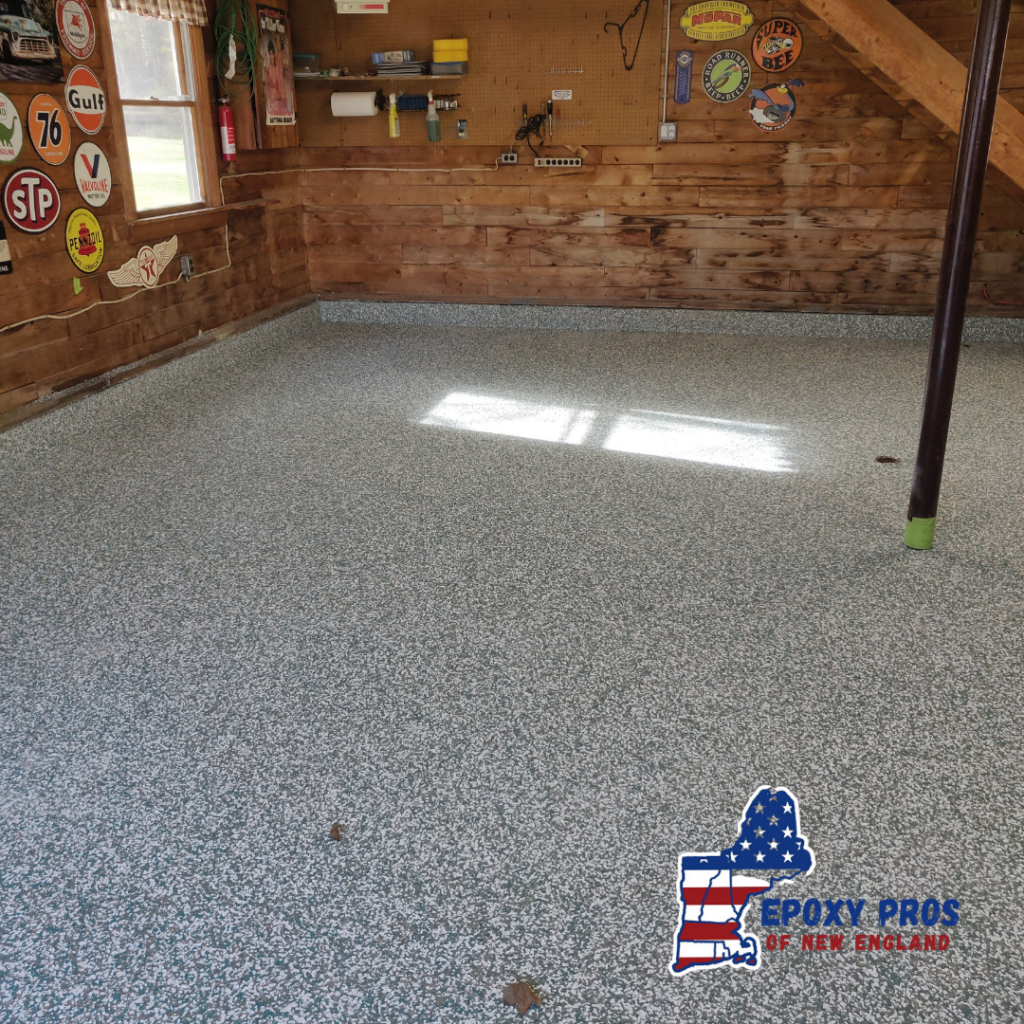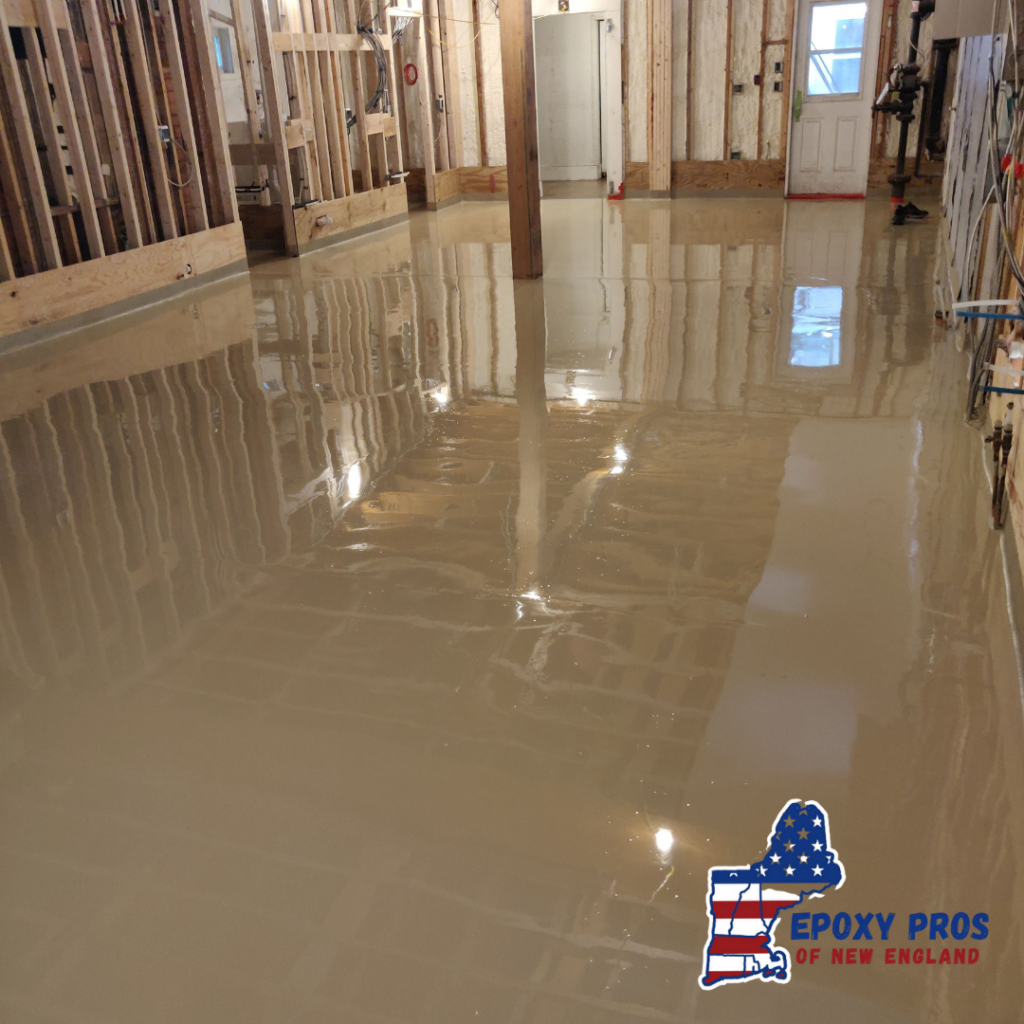A basement floor can be a difficult decision to make. You want something that will look good, last for years to come, and not break the bank. However, as the options continue to grow in available flooring types, it can be easy to feel overwhelmed by the necessary decisions.
If you are ready to install new flooring in your basement, it can help you to know the options you have and fit your space the best.
To help you choose the right residential basement flooring for your home, let’s break down the seven most common types of basement floors and how you can choose the right option for your home:
The Top 7 Residential Basement Flooring Options
Concrete
A classic choice that has stood the test of time for its durability and affordability. If done correctly, concrete will last decades without cracking or deteriorating in any way despite heavy foot traffic due to it being waterproof and resilient.
Tile
A popular choice for basement floors because it’s easy to clean and maintain, plus many tiles come in a variety of colors and designs, allowing you to customize the look as well. Tiles can be expensive, but they will likely last several decades with little deterioration or cracking if done correctly.
Carpet
A popular choice for basement floors because it’s inexpensive and easy to install. Carpeting is not waterproof, so if you live in a humid environment, be prepared for mold or mildew, which is why concrete or tile are better choices.
Wood
A classic look that many families prefer when designing their homes. You’ll need to seal the wood to prevent it from warping or rotting, and the more expensive installation will help with longevity.
Laminate
Often an option for those on a budget who want durability without breaking the bank. Laminate is easy to install but can be prone to chipping or scratching, so you’ll need regular maintenance for it not to look shoddy.
Linoleum
A popular choice for homes with kids or families who like to spend time in the basement. It’s easy to clean and maintain but will wear out quickly if you have any heavy furniture that sits on it, which is why concrete can be a better option long term.
Epoxy
Epoxy is a newer option that is frequently used for heavy foot traffic areas, like a basement. Epoxy floors are waterproof and durable, which means you won’t need to worry about the floor cracking or deteriorating as long as it’s maintained properly.


How to Pick the Right Basement Flooring for Your Residential Property?
Wondering how to pick the right basement flooring for your home? Here are some steps to help make the process smooth:
- Choose the flooring you want to have installed in your basement.
- Measure the space to know how much flooring you will need.
- Determine how you want the flooring installed.
- Choose a contractor to install your new basement floor and get them started on it as soon as possible.
As you can see, the process isn’t that difficult – especially if you partner with the right residential flooring contractor!
Invest In Top Quality Flooring
A basement floor can be the centerpiece of your home – it’s easy to create a room with an industrial loft feel or turn it into a serene living space. The type of flooring you choose to cover your basement can be the difference between a space you want to spend time in and one that you avoid.
To make sure you invest in the best flooring for your residential basement, work with an expert. Make sure to hire a contractor who understands the nuances of basement flooring and how to pick the right one for your needs and your space.
